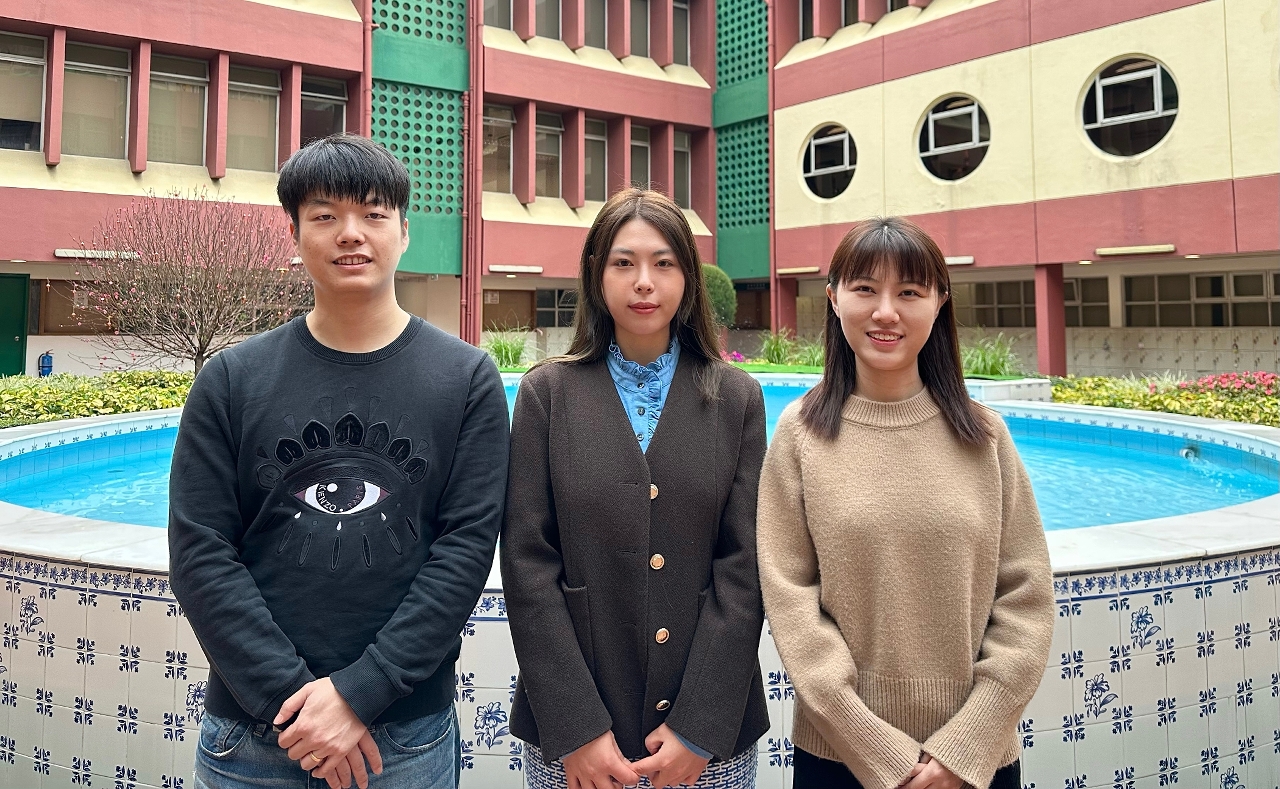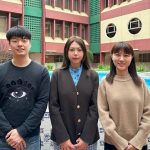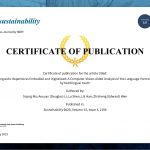 Mu Siqing (middle), Ph.D. student in Portuguese, Li Aoxuan (left) and Shen Lu (right), Ph.D. students in Computer Applied Technology
Mu Siqing (middle), Ph.D. student in Portuguese, Li Aoxuan (left) and Shen Lu (right), Ph.D. students in Computer Applied Technology
Mu Siqing, Ph.D. student in Portuguese, Li Aoxuan and Shen Lu, Ph.D. students in Computer Applied Technology, Han Lili, Dean of the Faculty of Languages and Translation (FLT), and Professor Wen Zhisheng, have had an interdisciplinary academic paper "Linguistic Repertoires Embodied and Digitalized: A Computer-Vision-Aided Analysis of the Language Portraits by Multilingual Youth" published by the journal Sustainability. The paper has been officially published in a special issue of the journal entitled "Technology-Enhanced Language Teaching and Learning: Innovations, Challenges, and Concerns". The journal's current impact factor is 3.889.
Sustainability (ISSN 2071-1050) is an interdisciplinary, open access, international journal dealing with environmental, cultural, economic and social sustainability of humans, providing a high-level forum for research on sustainability and sustainable development. The journal is included in many databases, such as Scopus, SCIE and SSCI (Web of Science), and is listed as a Q2 journal in the Scimago Journal & Country Ranking (SJR) journal ranking. Its instant citation score (CiteScore) reaches 5.0.
The paper aims to investigate how young Macanese people understand and portray their multilingual language inventory. A computer-aided visual analysis method was introduced to process the language portraits in order to compare and contrast the characteristics of the Macanese language database. The study uses a combination of OpenCV and K-means algorithms to quantify the digital language portraits in a directional way, helping researchers to understand more objectively the participants' perceptions of the multilingual resources. The paper is an innovative approach to linguistic portraits through computer vision, which has been unanimously praised by the reviewers and has brought new ideas for subsequent cross-disciplinary research. In addition, the paper draws on the hypothesis of the two characteristics of language resources ("Scope" and "Access") proposed by Anna-Christine Weirich, a German researcher in sociolinguistics, to analyze the reality of participants' multilingualism in different language domains.
In the process of digital and intelligent education transformation, scholars in China and abroad are increasingly using computer-assisted methods to promote the development of language research. In the field of second language/foreign language education, the construction of computer vision models can help teachers deepen their understanding of the importance that students attach to learning the target language and their learning motivation, so as to improve communicative effectiveness and increase interest in multilingual teaching. With the joint efforts of the research teams of FLT and the Faculty of Applied Sciences, this paper points out the feasibility of computer vision models for research in the field of education, emphasizing its great potential.
Mu Siqing is a Ph.D. candidate in Portuguese at FLT. Her main research areas are Computer-Assisted Language Teaching (CALL) and Translanguaging. In addition to the above-mentioned paper, she is also the first author of "Translanguaging Space and Cultural Dimensions in the Practice of Visual and Literary Art: a case analysis", a paper on the concept of translanguaging published in another Scopus journal Revista Ibérica de Sistemas e Tecnologias de Informação (RISTI), . She is the first author of the paper, and Professor Wen Zhisheng is the corresponding author, together with Li Aoxian, Shen Lu, and Dean Han Lili. The full paper is available at https://dx.doi.org/10.3390/su15032194 .



